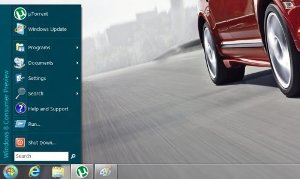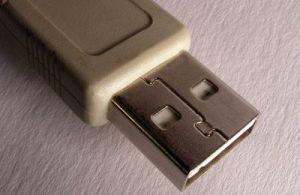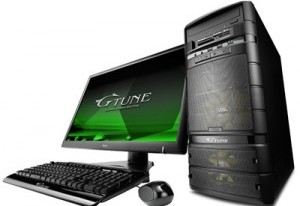Are you tired of your slow and sluggish laptop that takes ages to load? We’ve got you covered! In this blog post, we’ll share five simple steps that you can take to speed up your laptop and make it run like it’s brand new. Get ready to say goodbye to frustrating lagging and hello to a lightning-fast computer!
How to Speed Up Your Slow Laptop: An Exciting Guide
Are you tired of your slow laptop ruining your productivity? Fear not! With these 5 steps, you can speed up your laptop and get back to being efficient. First, diagnose the problem by identifying what’s slowing you down. Is it too many programs running at once or a lack of storage space? Once you’ve pinpointed the issue, make more space by removing unnecessary files and programs.
Don’t forget to check for viruses and malware, and run regular antivirus scans to keep your laptop in top shape. If you’re still experiencing slow performance, consider upgrading or replacing your hard drive with an SSD or adding extra RAM for maximum performance boosts. By following these steps, you’ll be amazed at how much faster your laptop can be. So, get ready to say goodbye to sluggishness and hello to a faster, more efficient laptop!
1. Diagnose the Problem: Identifying What’s Slowing You Down
Are you tired of your slow laptop? Do you feel like you’re constantly waiting for your computer to catch up with you? Before you start implementing the steps to speed up your laptop, it’s important to diagnose the problem. Identifying what’s slowing you down is the first step towards a faster and more efficient computer. Is it a lack of storage space?
Are there too many unnecessary files and programs? Could it be a virus or malware? Or is it simply time to upgrade your hardware? By taking the time to diagnose the problem, you can ensure that you’re taking the right steps to speed up your laptop and get it running like new again. So don’t wait any longer, let’s dive in and find out what’s slowing you down!
2. Make More Space by Removing Unnecessary Files and Programs
One of the most common reasons for a slow laptop is the lack of storage space. Over time, files and programs accumulate and take up valuable space on your hard drive, causing your laptop to run sluggishly. To speed up your slow laptop, it’s essential to make more space by removing unnecessary files and programs. This can be done by going through your files and deleting those that are no longer needed, such as old downloads, temporary files, and duplicate files.
Additionally, uninstalling programs that you no longer use can free up significant space on your hard drive. By doing so, you’ll not only speed up your laptop but also ensure that it runs more efficiently in the long run. With a little bit of time and effort, you can easily make more space on your laptop and enjoy a faster, more responsive device. So, roll up your sleeves and get started on decluttering your laptop – you’ll be amazed at the difference it makes!
3. Check for Viruses and Malware, and Run Regular Antivirus Scans
Now that you’ve identified what’s slowing down your laptop and cleared out unnecessary files and programs, it’s time to check for viruses and malware. These pesky intruders can cause your computer to slow down significantly and even compromise your personal information. Running regular antivirus scans is crucial to keeping your laptop running smoothly. You can either use the built-in antivirus software that comes with your operating system or download a third-party antivirus program for added protection.
Make sure to keep your antivirus software up-to-date and schedule regular scans to catch any potential threats. Don’t let viruses and malware bring your laptop to a crawl. Take the necessary steps to keep your computer running at optimal speed and protect your personal information. With a little effort, you can enjoy a faster and safer computing experience.
4. Upgrade or Replace Your Hard Drive with an SSD
Are you tired of waiting for your laptop to load programs or boot up? Upgrading or replacing your hard drive with an SSD can be a game-changer. SSDs, or solid-state drives, are faster and more reliable than traditional hard drives. They use flash memory to store data, which means they have no moving parts and can access data almost instantly. This can significantly speed up your laptop’s performance, making it feel like a brand new machine.
Upgrading your hard drive to an SSD can be a bit more expensive, but it’s definitely worth the investment if you want to boost your laptop’s speed and overall performance. Plus, SSDs are more durable and less prone to failure than traditional hard drives, which means you’ll have a more reliable storage solution. So, if you’re looking to take your laptop to the next level, consider upgrading or replacing your hard drive with an SSD.
5. Consider Adding Extra RAM for Maximum Performance Boosts
Are you tired of your slow laptop? Have you tried all the previous steps, but still not satisfied with the performance? Well, don’t worry because we have another trick up our sleeve. Consider adding extra RAM for maximum performance boosts. RAM, or Random Access Memory, is responsible for storing data that your computer is currently using. The more RAM your laptop has, the more data it can store, and the faster it can access that data.
Upgrading your RAM is an affordable and effective way to speed up your laptop. You can check your laptop’s specifications to see how much RAM it currently has and how much it can support. Adding more RAM can make a significant difference in your laptop’s performance, especially if you use memory-intensive applications such as video editing software or gaming. So, if you want to take your laptop’s performance to the next level, consider adding extra RAM.
Final Words:
Congratulations! You’ve made it to the end of our exciting guide on how to speed up your slow laptop. By following these 5 steps, you can breathe new life into your old computer and enjoy faster performance. Remember, the first step is always to diagnose the problem and identify what’s causing your laptop to slow down. From there, you can make more space by removing unnecessary files and programs, check for viruses and malware, upgrade your hard drive to an SSD, and add extra
RAM for maximum performance boosts. With these tips in mind, you can say goodbye to frustratingly slow load times and hello to a speedy and efficient laptop. Don’t let a sluggish computer hold you back any longer – take action today and enjoy a faster, more productive computing experience!


